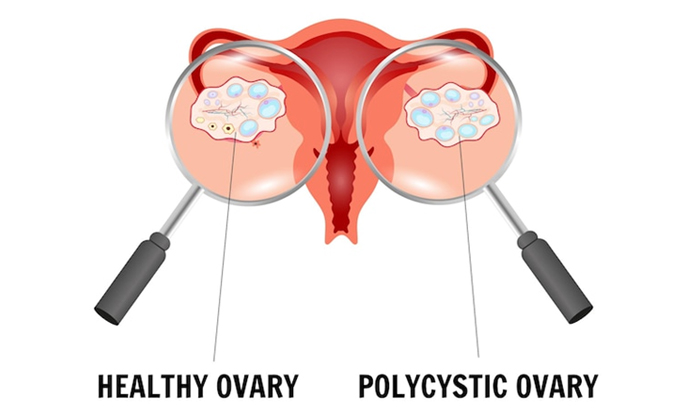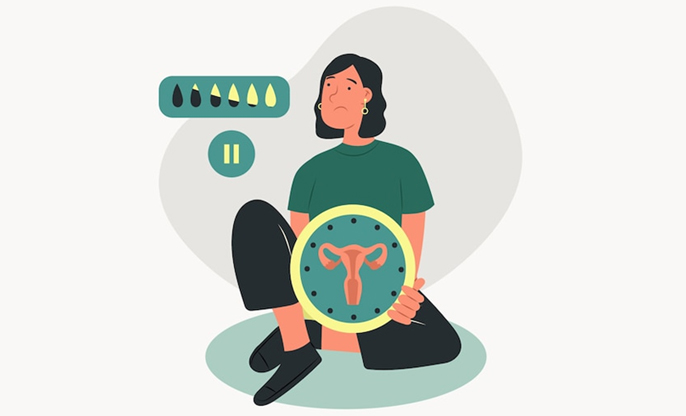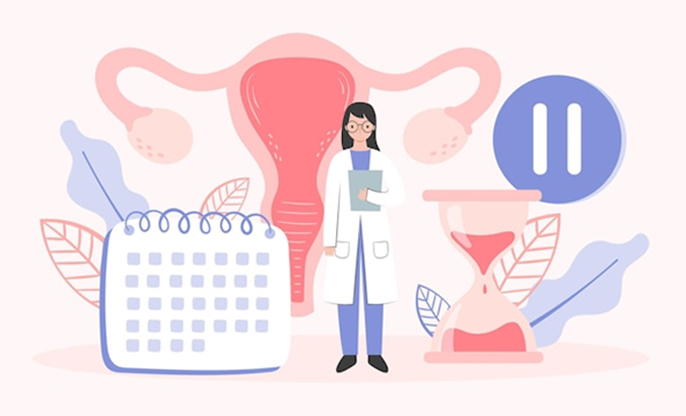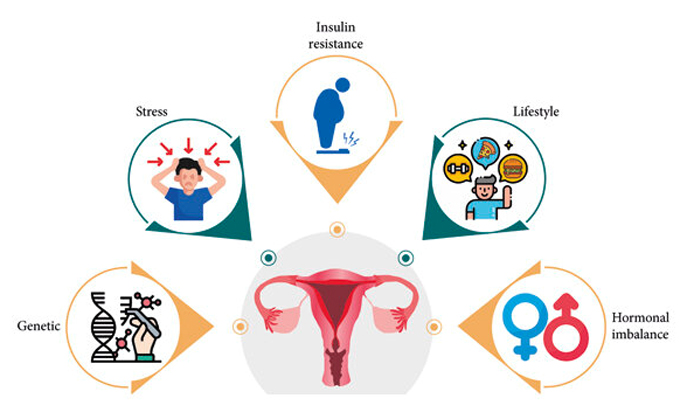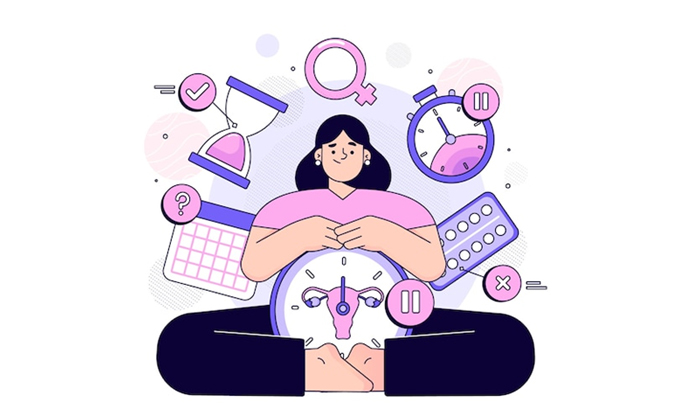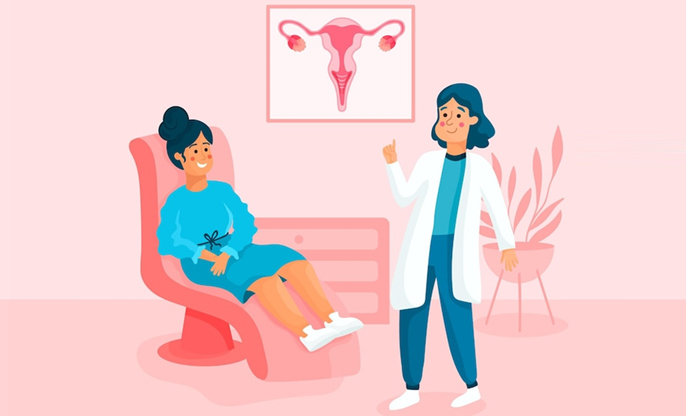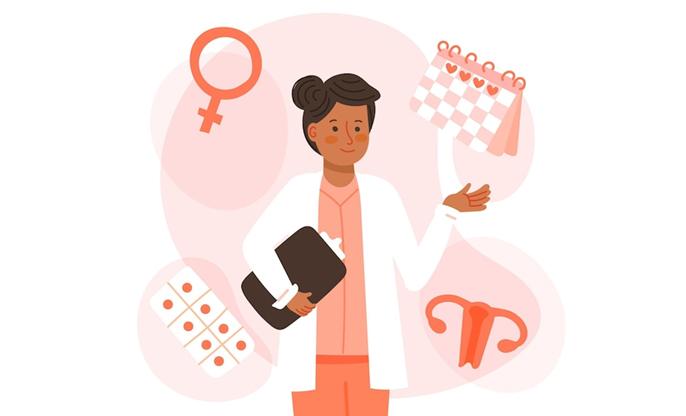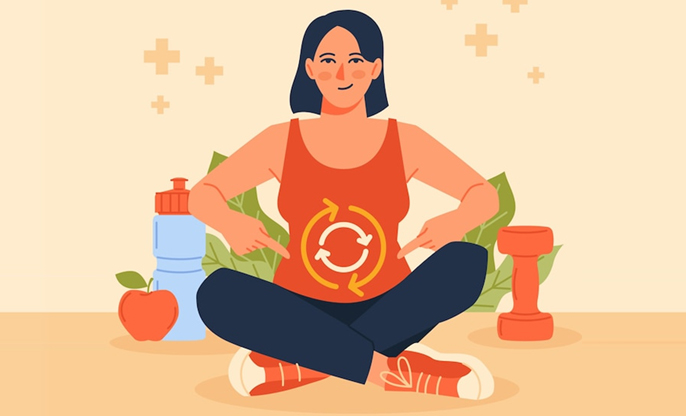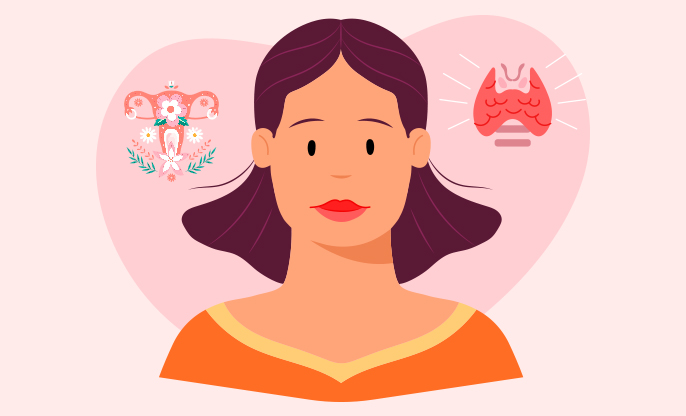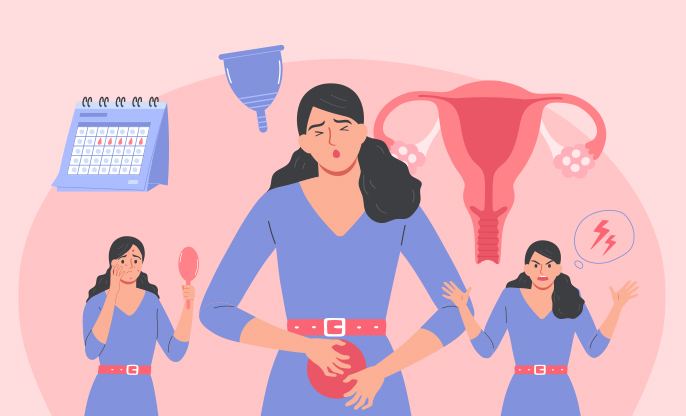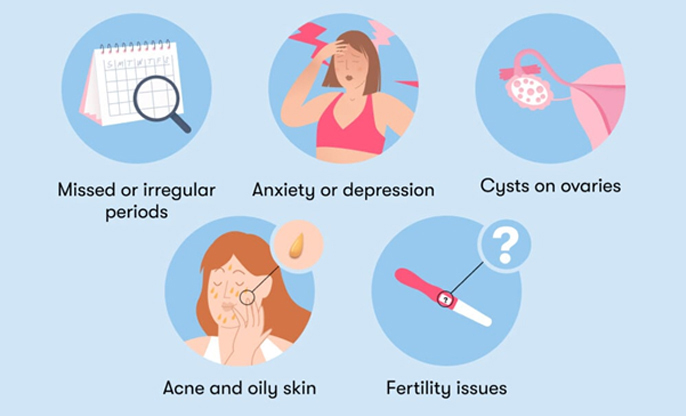
Living with Polycystic Ovary Syndrome (PCOS) means facing a host of symptoms that can impact not just our fertility but our overall health and daily life. Here's a look at the challenges we might encounter with PCOS:
- Irregular Menstrual Cycles: Our periods can be unpredictable. Sometimes they are infrequent or may stretch longer than usual, and at times, they are unusually heavy. It’s like never knowing when or how they’ll happen, which can be really stressful.
- Hyperandrogenism: With PCOS, our body makes more male hormones than it should. This leads to things like extra hair on my face or body, severe acne, and even thinning hair on the scalp, which can really affect how we feel about our appearance.
- Polycystic Ovaries: Our ovaries aren’t functioning typically. They're larger and filled with numerous small cysts. These aren’t harmful in themselves, but they're a sign that our ovaries aren’t releasing eggs regularly, which messes with our fertility.
- Weight Gain: It’s frustrating, but weight gain is common with PCOS, especially around the belly. This isn't just a cosmetic issue - it makes us more prone to serious conditions like type 2 diabetes.
- Insulin Resistance: Our body struggles to use insulin properly, which means higher levels of insulin and glucose in the blood. This not only increases our risk of diabetes but also makes it harder to lose weight.
- Fertility Issues: One of the most heart-wrenching aspects of PCOS is the trouble with getting pregnant due to irregular ovulation or the complete absence of ovulation. It’s a tough journey for anyone dreaming of starting a family.
- Mood Disorders: Dealing with PCOS isn’t just a physical battle; it affects our mood too. We are more prone to depression and anxiety, partly because of hormonal imbalances and partly from the stress of managing these symptoms.
- Fatigue: No matter how much we rest, we often feel drained. This lack of energy is linked to poor sleep, another joy of PCOS, possibly compounded by sleep disturbances like sleep apnea.
- Sleep Apnea: More than just snoring, sleep apnea in PCOS can mean our body stops breathing briefly when we are asleep. This results in poor sleep quality and feeling tired all day, making it hard to find the energy for everyday tasks.
These symptoms of PCOS aren't just a list in a medical textbook; they're real challenges that affect how we live and feel every day. But by recognizing and understanding these symptoms, we can take proactive steps towards managing our health and finding support from others who really understand what we are going through.
